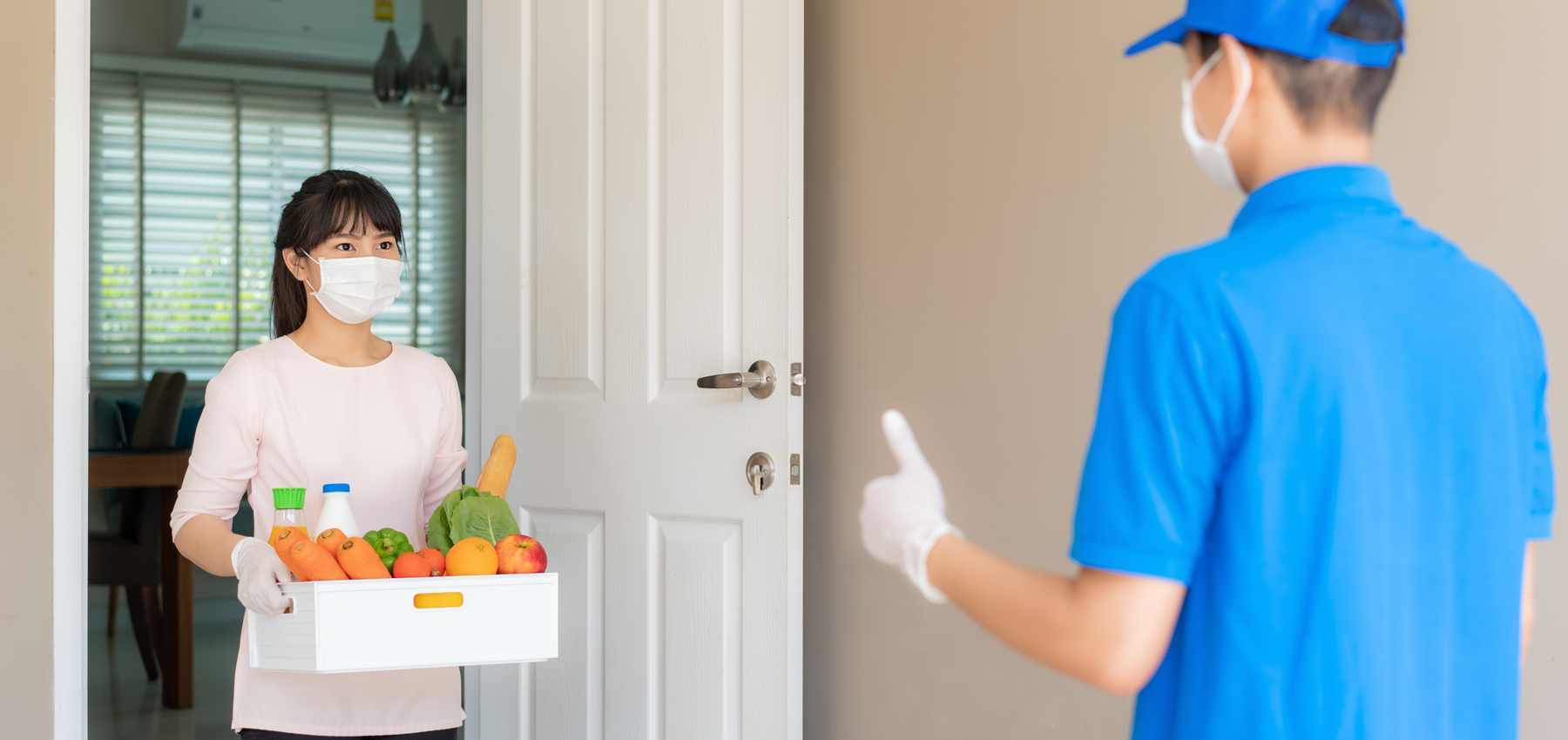Last updated: November 30, 2022
Effective October 2022, the Government of Canada has removed all COVID-19 related travel restrictions, including vaccination and testing requirements, quarantine, the mandatory use of ArriveCAN, and masking in public places. However, as the pandemic evolves, travel restrictions may continue to be updated, so please check the government’s website for up-to-date information. The information available in this article is no longer valid. |
In January 2022, the Canadian government amended travel restrictions for all new and returning international students, allowing them to enter Canada if they are fully vaccinated, have been accepted into a Designated Learning Institution (DLI), and have a valid study permit. Following this announcement, many students are preparing for their travel to start or resume their studies in Canada.
Starting April 1, 2022, fully vaccinated travellers no longer require a pre-arrival COVID-19 test to enter Canada. Effective February 28, 2022, fully vaccinated international travellers, including international students, entering Canada will be randomly selected for on-arrival COVID-19 testing and will no longer be required to quarantine while they await their test results. However, you are still required to have a quarantine plan in place, in case you test positive for COVID-19 on arrival.
In this article, we will discuss the quarantine guidelines outlined by the Canadian government, so you’re well aware of the requirements. We will also provide tips and recommendations to help you plan your quarantine stay as an international student in Canada.
|
For all latest updates, please see Government guidelines and restrictions for travel to Canada. |
Planning to apply for a Canadian student permit? Check out the following resources:
Note: Due to the impact of COVID-19, currently, you can only submit student permit applications online. |
|---|
Requirements to enter Canada as an international student
Before you book your travel to Canada, you should –
- Be fully vaccinated with a COVID-19 vaccine approved in Canada.
- Confirm if your university, college or Designated Learning Institution (DLI) features on the approved DLIs list – this is an essential requirement to travel to Canada as an international student. Approved DLIs are educational institutions that have a COVID-19 readiness plan in place. The list is updated regularly as provinces and territories identify additional schools. Note that if you try to travel to Canada when your DLI isn’t included, you may not be allowed to board your flight, or you may be turned away at the port of entry.
- Confirm if your required courses will be offered online or on-campus and whether travel to Canada is required.
- Have a valid study permit or a letter of introduction that shows you were approved for a study permit.
- Have a valid letter of acceptance (LOA) from a DLI with a COVID-19 readiness plan approved by its province or territory.
- Have proof of financial support ready for yourself and any family members who accompany you to Canada.
- Familiarize yourself with the requirements for appropriate cleaning and disinfection standards for COVID-19 in preparation for your arrival or quarantine in Canada.
- Effective April 1, 2022, fully vaccinated travellers entering Canada no longer require a pre-arrival COVID-19 test. For travellers who are not fully vaccinated, documentation of a negative COVID-19 molecular polymerase chain reaction (or PCR) test result taken within 72 hours before departure must be presented to the airline prior to boarding a flight to Canada. As of February 28, 2022, results of rapid antigen tests taken within 24 hours of your departure to Canada will also be accepted.
- Please note that everyone with a negative test result authorized to enter Canada is required to have a quarantine plan. Travellers who are fully vaccinated with a vaccine that is approved in Canada may be randomly selected for an on-arrival COVID-19 test but, effective February 28, 2022, fully vaccinated travellers will no longer need to quarantine while waiting for the result.
- Download the ArriveCAN mobile app (available on Android and iOS) and submit your travel and contact information, quarantine plan, and COVID-19 symptom self-assessment electronically. You must be ready to show your ArriveCAN receipt when seeking entry into Canada; a border services officer will verify that you have submitted the information digitally. If you do not submit the required information digitally before boarding the flight, you could be subject to enforcement action, which can range from verbal warnings to a $1,000 CAD fine.
How to prepare a quarantine plan
Even if you are fully vaccinated and are exempt from the 14-day quarantine requirement, having a quarantine plan is mandatory. Your quarantine plan may not only be required at the time of your entry to Canada, but you may also have to get it pre-approved by your DLI in advance of your arrival. If you don’t have a plan, you should not travel to Canada. Otherwise, you may not be allowed to enter the country.
According to government guidelines, your quarantine plan should outline:
- Where you will be staying for the duration of your quarantine (have a single address ready);
- How you’ll –
- Get to your destination from the airport;
- Get your groceries or meals; and
- Access essential services and medical care, should you need any.
Tips for your quarantine planMany DLIs are offering quarantine packages for international students arriving in Canada. These packages typically include accommodations, transportation, cleaning supplies, health check-ins, and a meal plan. Check with your DLI to know if they have a similar offering. If you decide to create your own quarantine plan, here are a few tips to help you: Accommodation
Transportation
Groceries, cleaning supplies, and essential items:
Payment options:
|
|---|
[/fusion_table]
Arriving in Canada
Here are a few things to note for your arrival in Canada:
- Wear a non-medical mask or face covering that covers your mouth and nose.
- Be ready to pass two health checks:
- Conducted by the airline before boarding your flight.
- Conducted by a Public Health Agency of Canada officer once you arrive in Canada.
- Have a quarantine plan ready to be shared with the border services officer. This plan is mandatory, even if you have no symptoms or are exempt from a full 14-day quarantine.
- As of February 28, 2022, on-arrival testing will be done randomly for fully vaccinated travellers.
- Stay updated about the face covering requirements for air travellers.
- Ensure you can provide the method of contact once you arrive in Canada so that authorities can reach you. For example, WhatsApp, Canadian phone number, etc.
Post-arrival protocols
- You are no longer required to quarantine upon arrival in Canada, unless you test positive on your random on-arrival COVID-19 test. You will no longer be required to quarantine while waiting for your result.
Quarantine guidelines for international students arriving in Canada
Before travelling to Canada, you must plan for your quarantine period, even if you’re exempt from the full 14-day quarantine period.
Where not to quarantine
Do not quarantine in places where you can’t separate yourself from those who live with you. For example:
- In a group or communal living setting;
- In a household with large families or many people;
- In a shared a small apartment, or have roommates who have not travelled with you; or
- At a camp, student dorm or other group setting where there is close contact and shared common spaces.
- In a household with vulnerable people, such as those who:
- Are 65 years or older,
- Have underlying medical conditions, or
- Have compromised immune systems.
Monitor your health after arrival
If you start experiencing any symptoms of COVID-19 (new or worsening cough, shortness of breath, fever equal to or greater than 38 degree Celsius, chills, fatigue or weakness, muscle or body aches, new loss of smell or taste, headache, gastrointestinal symptoms like abdominal pain, diarrhea, vomiting; or feeling very unwell), isolate yourself from others and follow the COVID-19 instructions of the local public health authority.
Note: As of February 28, 2022, on-arrival testing for fully vaccinated travellers will be done randomly and not everyone will be tested.
What you can and cannot do during your quarantine
As an international student, you will likely not be required to quarantine upon your arrival in Canada. The only exception is if you test positive on your random on-arrival COVID-19 test. The following is prohibited during quarantine:
- Leaving your place of quarantine unless it is to seek time-sensitive medical services.
- Having guests over even if you are outside and stay two metres apart.
- Using shared spaces such as lobbies, courtyards, restaurants, gyms or pools.
The following is permitted during quarantine:
- Living with family or friends who didn’t travel with you, provided you have a separate bedroom and bathroom, if possible.
- Using shared spaces such as a kitchen, provided you:
- Limit interactions with others in the household and wear a mask or face covering if a two-metre distance cannot be maintained;
- Thoroughly and regularly clean common areas after use.
- Using private outdoor spaces (such as a balcony), provided you avoid contact with others who didn’t travel with you.
The following is recommended during quarantine:
- Washing your hands often with soap and warm water or using an alcohol-based hand sanitizer that contains at least 60 per cent alcohol.
- Avoiding touching your face.
- Covering your mouth and nose with your arm when you cough or sneeze.
Note: You may be called from 1-888-336-7735 to verify your compliance during your quarantine. If federal and provincial/territorial quarantine guidelines differ, you should follow the most precautionary and stringent requirements.
Tip: See Moving to Canada as an international student during COVID for tips to help you get set up with the basics upon arrival in Canada.
The penalties for not following your quarantine plan once you’re in the country can include:
- A fine of up to $750,000 CAD;
- Six months of jail time;
- Being found inadmissible, removed from Canada and banned from entering for one year.
International travel during the pandemic requires plenty of preparation, especially if travelling as an international student. Be sure to get information from authentic sources and consult with your DLI, so you can plan your travel, stay, and studies smoothly and without stress.




